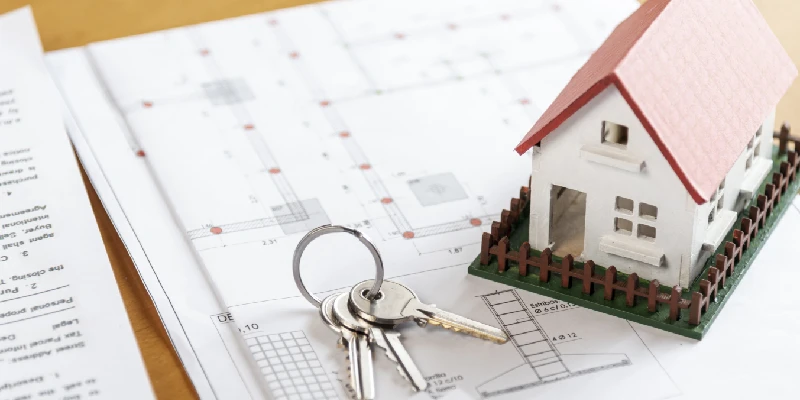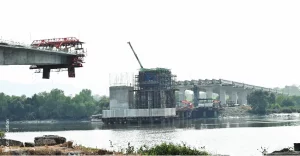Important Property Documents Required for Purchase of Property as Per RERA

Owning a home isn’t just a dream; it’s a lifelong aspiration, and we pour our hearts and souls into making this dream a reality. It is also worth the time and effort to secure a place we can truly call our own. However, for most of us, diving into the realm of property acquisition can seem rather overwhelming, especially if you’re a first-time homebuyer.
Amidst all that excitement, there’s a lot of jargon to decipher, multiple legal intricacies to navigate, and several property documents to cross-check and go through. To help you out, we have a list of property documents that you should keep in mind before purchasing a property. Let us have a look.
List of Documents to Check Before Buying a Property in India
When buying a property in India, having a verified set of legal documents is crucial to ensure a smooth and legally secure transaction. Here are certain key documents to keep in mind:
-
Agreement for Sale
A contract between a buyer and seller that outlines the terms of a property transaction, but it doesn’t transfer ownership immediately. It’s a promise to sell and purchase a property in the future, under agreed-upon terms. The agreement sets out details like the price, payment schedule, and timelines for the final sale deed. It’s a legally binding document that ensures the seller will sell and the buyer will buy the property under the agreed terms. It’s usually signed before the actual sale deed, which transfers ownership.
-
Absolute Sale Deed and Title Deed
One of the most crucial property documents that records the actual transfer of ownership of the property from Seller to Buyer is the sale deed. It’s a final, legally binding agreement that confirms the sale and sets out the terms of the transaction.. Compulsory registration of the sale deed is necessary. It has legal validity as proof of ownership.
Before finalizing the transaction, all involved parties should sign the sale deed and carefully review the terms and conditions mutually agreed upon by the seller and buyer. Buyers should check for a clear title and whether the property has any encumbrance charges before signing the sale deed. The sale deed must then be registered with the sub-registrar’s office in the jurisdiction where the property is situated.
-
Revenue records:
Specifically in the context of land, is a document maintained by the government to track ownership, transfer, and details related to a piece of land. It includes information like the rightful owner, tenancy rights, mortgages, and other legal charges against the land in which the property is situated. Land revenue records in India are referred to differently in various states. Bhulekh, Khata, Khasra, Khatauni, Jamabandi, Satbara (7/12), Patta, and Pahani are some prominent land record words.
-
Encumbrance Certificate (EC)
The encumbrance certificate confirms that the property is free from any financial or legal encumbrances, such as unpaid loans or mortgages. This document can be obtained from the sub-registrar’s office and is crucial to ensure that the property is not involved in any existing liabilities. This document is vital if you are considering getting a loan from a bank/ financial institutions, as financial institutions often require an EC as part of the loan application to confirm that the property is free from any encumbrances or legal liabilities.
-
Approved Building Plan
The builder or developer must provide a copy of the building plan approved by the local municipal authorities. This ensures that the construction adheres to zoning laws, building regulations, and safety guidelines.
-
Completion Certificate
The completion certificate is issued by local authorities after verifying that the construction is finished as per the approved plan. It confirms that the building complies with safety regulations, structural standards, and other legal requirements.
-
Occupancy Certificate
An occupancy certificate certifies that the property is fit for occupation and meets all building codes, including fire safety, sanitation, and structural stability.
-
RERA Registration Certificate
RERA mandates that builders and developers register their projects with the regulatory authority. This certificate provides assurance that the project complies with RERA norms, making it safer for buyers. Verify the registration number on the RERA website for authenticity. However, projects with a land area of 500 square meters or less, or those with eight or fewer apartments (inclusive of all phases), are exempt from RERA registration. Additionally, projects that received a completion certificate before RERA’s enactment are also exempt.
-
Allotment Letter
The allotment letter is issued by the builder and contains details about the property, payment schedule, and agreed-upon terms. It is typically provided after the initial booking amount is paid and serves as proof of your interest in the property.
-
Property Tax Receipts
Property tax receipts ensure that the seller has cleared all previous dues related to the property. This helps avoid complications with the local authorities after the purchase. Verify the receipts to ensure there are no outstanding payments.
-
No Objection Certificates (NOCs)
Builders must obtain NOCs from various departments, such as the water supply board, electricity board, fire safety department, Pollution Control Board Environment Department and Traffic and Coordination Department. These NOCs ensure that the property complies with all regulations and has necessary approvals for utilities and safety.
-
NOC from the Society:
If the property is part of a housing society, a No Objection Certificate (NOC) from the society should be obtained
-
Home Loan Clearance Certificate (if applicable)
If the seller has financed the property through a loan, ensure that the home loan has been repaid in full. Obtain a loan clearance certificate from the lending institution to confirm there are no outstanding debts related to the property
-
Ownership Transfer Documents
For resale properties, ownership transfer documents like the previous sale deed and mutation records are crucial. These documents ensure a smooth transfer of ownership from the previous owner to the buyer.
-
Legal Opinion
A legal opinion from a qualified property lawyer is essential to verify the authenticity of all documents. The lawyer will review the title deed, sale agreement, encumbrance certificate, and other records to ensure there are no legal discrepancies or risks.
In the dynamic landscape of real estate, navigating the purchase of property demands a comprehensive understanding of the essential documents, especially in alignment with the RERA guidelines. At Mahindra Lifespaces, we recognise the significance of these documents in ensuring a transparent and secure transaction process.
How To Verify Property Ownership Documents Online in India?
Verifying ownership documents of property online in India has become simpler with government portals. Platforms like the state’s land record websites allow buyers to cross-check property ownership documents using details like the survey number or owner’s name. Before proceeding with purchase documents, ensure the title, encumbrance certificate, and sale deed are authentic.
These records form part of the essential legal documents required for the purchase of property in India. Always rely on official websites rather than third-party portals. A complete property documents list can usually be found through local municipal authorities or land revenue offices, helping buyers to make informed decisions.
Common Mistakes to Avoid While Collecting Property Documents
When collecting legal documents for the property purchase in India, overlooking small details can cause major issues later. One common mistake is failing to verify the authenticity of the ownership documents of property with the land registry. Another frequent error is assuming photocopies are sufficient; always insist for original property ownership documents. Some buyers ignore cross-checking the property documents list against government records, which can result in disputes later. Relying solely on the seller’s word without independent legal verification is also risky. Always consult legal experts to validate purchase documents and safeguard your investment during a property transaction.
How Long Does It Take to Complete the Property Purchase Process in India?
The timeline to complete a property purchase in India typically ranges between two to six months, though the exact timeline can differ depending on individual circumstances. The process starts with verifying legal documents required for the purchase of property in India, including sale agreements, title deeds, and clearances. Once the ownership documents of the property are validated, buyers proceed to sign the agreement and register it officially.
Delays often happen due to incomplete property documents list submissions, financing issues, or legal disputes. Ensuring all property ownership documents are correct from the beginning can significantly speed up the transaction. Working with a professional real estate advisor or legal consultant helps streamline the entire journey.
Take a Step Towards Your Dream Home
As you embark on your property journey, armed with knowledge about these crucial documents, you’re not just making a purchase – you’re investing in a future brimming with possibilities. With RERA’s protective umbrella and our commitment to excellence, your dream home becomes not just a vision but a tangible reality built on trust, compliance, and a shared vision of a brighter tomorrow.
FAQs
-
Is it safe to buy a property that is not RERA-registered?
Buying a property that is not RERA-registered can be risky. Without registration, verifying the ownership documents of property and other legal documents required for the purchase of property in India becomes difficult. RERA registration ensures transparency, protects buyers’ rights, and confirms that essential property documents are in order. Always check the property documents list carefully and prefer RERA-registered projects to safeguard your investment and avoid potential legal disputes. However, projects with a land area of 500 square meters or less, or those with eight or fewer apartments (inclusive of all phases), are exempt from RERA registration. Additionally, projects that received a completion certificate before RERA’s enactment are also exempt.
-
Are payment receipts important in property transactions?
Yes, payment receipts are extremely important in property transactions. They serve as proof of funds exchanged between the buyer and seller, supporting the purchase documents during registration. Payment receipts should form part of the property documents list collected for your records. These documents also play a crucial role if legal verification is ever needed, ensuring a smooth process when confirming ownership documents of property during resale or future dealings.
-
Are digital property documents valid in India?
Digital property documents are valid in India if they are issued by authorised government portals or legally certified authorities. Important ownership documents of property, such as the Encumbrance Certificate and land records, are now accessible online through official state websites. However, when collecting the legal documents required for the purchase of property in India, ensure they are digitally signed and verifiable. Always cross-check the digital copies with original property ownership documents for accuracy.
-
Can property ownership documents be transferred online in India?
Yes, property ownership documents can be transferred online in India, depending on the state’s digital infrastructure. Many states now offer online services for mutation, title transfer, and registration through official land record portals. This move simplifies obtaining legal documents required for the purchase of property in India. Digital platforms have made managing property document lists more efficient, and certain steps in transferring property ownership in India can now be initiated online. However, the process typically requires a physical visit to the Sub-Registrar’s Office to complete the registration formalities.
-
Are property documents standardised across all Indian states?
Property documents are not fully standardised across all Indian states. Although the core ownership documents of property, such as the sale deed, title deed, and Encumbrance Certificate, are generally required everywhere, formats and procedures can vary regionally. When gathering legal documents required for the purchase of property in India, buyers must check the specific property documents list applicable to the state where the property is located to ensure compliance with local regulations.


















